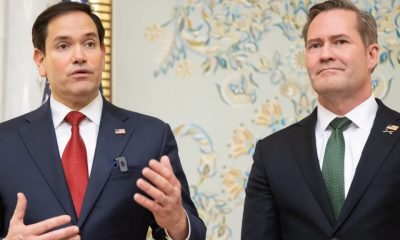International
US, Western allies clash with Russia, Iran at UN over Tehran’s uranium, drones for Russia
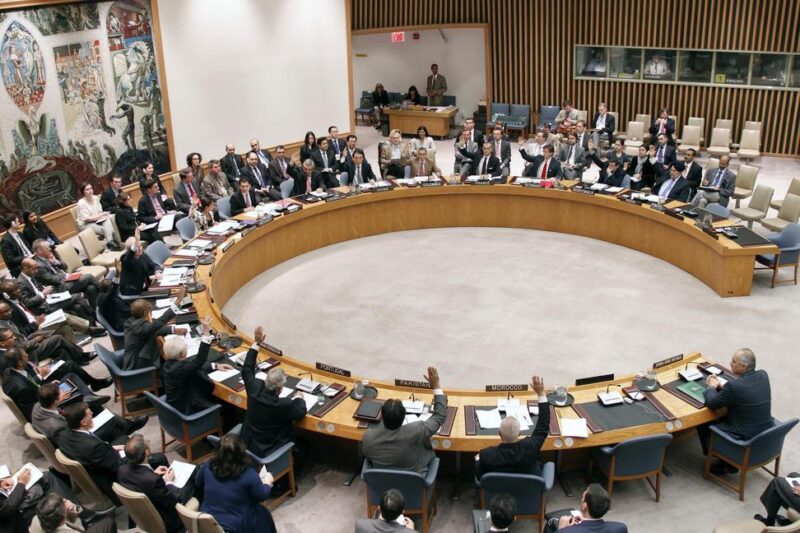
US, Western allies clash with Russia, Iran at UN over Tehran’s uranium, drones for Russia
The United States and its Western allies have clashed with Russia and Iran at the U.N. Security Council over Tehran’s advancing uranium enrichment and its reported supply of combat drones to Moscow being used to attack Ukraine.
The sharp exchanges came at the council’s semi-annual meeting on implementation of its resolution endorsing the 2015 nuclear deal between Iran and six major countries known as the Joint Comprehensive Plan of Action, which the U.S. under then-President Donald Trump left in 2018.
At the start of the meeting, Russia’s U.N. Ambassador Vassily Nebenzia accused Britain, which hold the council presidency, of seeking to hold “an openly politicized show” by inviting Ukraine to take part in the meeting when it is not part of the JCPOA. He demanded a procedural vote on its participation.
U.S. deputy ambassador Robert Wood countered, accusing both Iran and Russia of participating in the transfer of drones used in Ukraine without prior Security Council approval in violation of the 2015 resolution.
“This is a matter of life or death for the Ukrainian people,” Wood said. “It would be unconscionable to deny Ukraine the opportunity to speak at this meeting when it is experiencing the devastating effects of Iran’s violation of resolution 2231 firsthand.”
READ ALSO:
- Sit-at-home: Police arrest 15 enforcers, recover arms, charms in Ebonyi
- ‘Pastor’ cuts ties after defrauding US-based Nigerian of N1.5m
- Late Adeleke’s wife, Aregbesola’s aides among Osun commissioner nominees
Britain’s U.N. Ambassador Barbara Woodward, who was chairing the council meeting, then called for a vote on whether Ukraine could participate. Twelve members voted “yes,” while China and Russia voted “no” and Mozambique abstained.
The United States, Britain, France and Ukraine have urged U.N. Secretary-General Antonio Guterres to send investigators to Ukraine to examine debris from drones used in Russia’s attacks, insisting that resolution 2231 gives him a mandate to open an investigation.
Russia insists he has no such authority and Nebenzia warned the U.N. Secretariat against taking any such action. Iran’s U.N. Ambassador Amir Saeid Iravani added that any U.N. findings “based on such illegal activities is null and void.”
U.N. political chief Rosemary DiCarlo said in her briefing to the council that France, Germany, Ukraine, the U.K. and U.S. had written letters concerning alleged transfers of drones from Iran to Russia and had provided photographs and their analyses of the recovered drones.
“The Secretariat continues to examine the available information,” DiCarlo said, giving no indication of when or if a U.N. investigation would take place.
Ukraine’s U.N. Ambassador Sergiy Kyslytsya told the council that more than 1,000 drone launches over Ukraine had been recorded and that analysis by Ukrainian and international experts confirmed their Iranian origin.
Russia’s Nebenzia accused Ukraine and the West of fomenting misinformation and dismissed the evidence as comical.
France, Germany and the UK, which are parties to the JCPOA, said in a joint statement that Iran has also been in violation of its nuclear commitments under the 2015 deal for four years.
READ ALSO:
- Supreme Court orders release of Senator Nwaoboshi from prison
- Jubilation in Taraba as governor declares free primary, secondary education
- Just in: Tinubu names Oyedele chairman Tax Reform Committee
They pointed to the International Atomic Energy Agency’s reports that Iran’s total stockpiles of enriched uranium are now 21 times the amount permitted under the 2015 nuclear deal — and the IAEA’s detection in January of uranium particles enriched to 83.7%, which is almost at weapons-grade levels of 90%. Any stockpile of uranium at that level could be quickly used to produce an atomic bomb if Iran chooses.
The 2015 nuclear deal limited Tehran’s uranium stockpile to 300 kilograms (661 pounds) and enrichment to 3.67% — enough to fuel a nuclear power plant. But following the U.S. withdrawal, Tehran escalated its nuclear program and has been producing uranium enriched to 60% purity — a level for which nonproliferation experts already say Tehran has no civilian use.
Iran informed the IAEA that “unintended fluctuations” in enrichment levels may have occurred accounting for the particles enriched to 83.7%, and Iravani, the Iranian ambassador, and Russia’s Nebenzia both said the issue has been resolved.
France, Germany and the UK said Iran also “continues to develop and improve ballistic missiles capable of delivering nuclear weapons,” pointing to a May 25 test of a missile they said is capable of delivering a warhead to a range of 2,000 kilometers (1,240 miles).
U.S. ambassador Wood said “Iran’s ballistic missile activity – especially in light of Tehran’s nuclear ambitions and its threatening rhetoric – is an enduring threat to regional and international peace and security.”
Iravani countered that “Iran is fully determined to vigorously pursue its peaceful nuclear activities including enrichment.”
Negotiations on the U.S. rejoining the deal and Iran returning to its commitments broke down last August. European Union Ambassador Olof Skoog told the council the EU compromise text is still on the table “as a potential point of departure for any renewed effort to bring the JCPOA back on track.”
Iravani said: “We are still prepared for the resumption of negotiations should the other side be ready to do the same.”
US, Western allies clash with Russia, Iran at UN over Tehran’s uranium, drones for Russia
Provided by SyndiGate Media Inc. (Syndigate.info).
International
Ceasefire negotiations: Trump ‘very angry’ with Putin
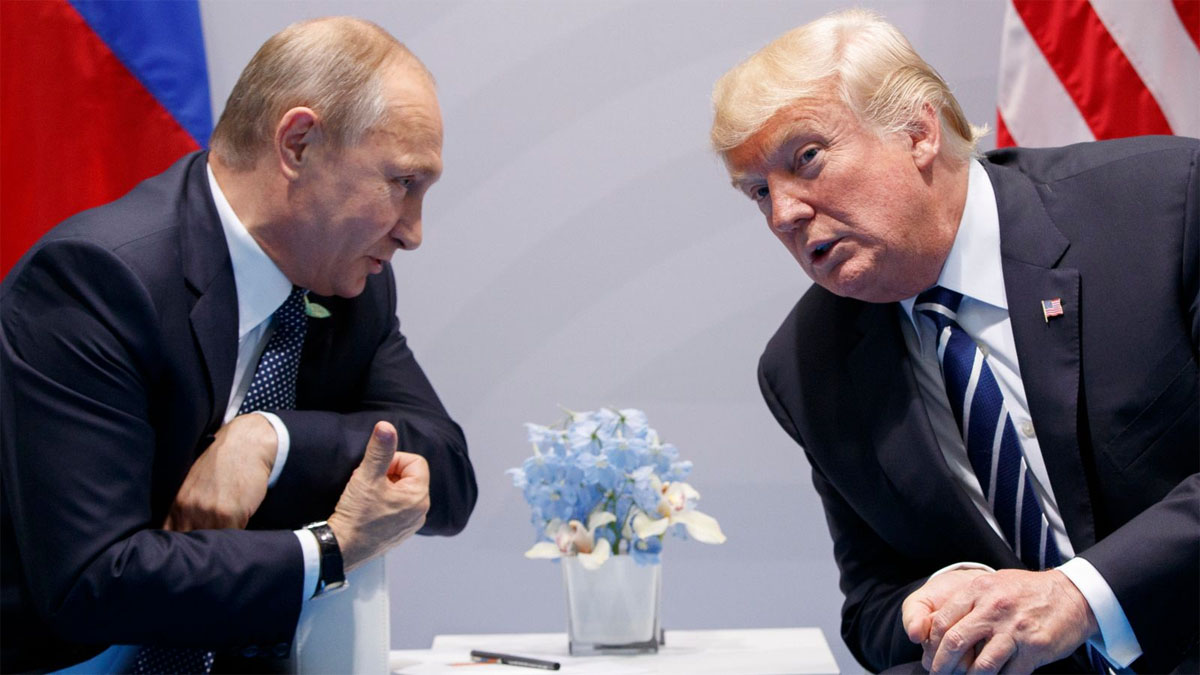
Ceasefire negotiations: Trump ‘very angry’ with Putin
Donald Trump has said he is “very angry” and “pissed off” with Russian President Vladimir Putin after weeks of attempting to negotiate a ceasefire in Ukraine.
In an NBC News interview, the US president criticised Putin for attacking Ukrainian President Volodymyr Zelensky’s credibility, and threatened to impose a 50% tariff on countries buying Russian oil if he did not agree to a ceasefire.
Last week, Putin suggested the possibility of a UN-run government in Ukraine to organise new elections and then begin peace talks.
Trump’s comments mark a change in tone towards Putin. Over the past six weeks, Trump has publicly harangued Zelensky and demanded numerous concessions from Ukraine’s president.
In turn, he has flattered Putin and largely given in to the Russian president’s demands.
European leaders had worried that Trump was cosying up to Putin.
But Trump’s comments on Sunday appeared to be a departure from that dynamic. It is the first time the US has seriously threatened Russia with consequences for dragging its feet in ceasefire negotiations, which would seem to put the diplomatic ball back in Moscow’s court.
NBC News reported that, in a 10-minute phone interview, Trump said he was very angry and “pissed off” when Putin criticised the credibility of Zelensky’s leadership, although the president has himself called Ukraine’s leader a dictator and demanded that he hold elections.
“You could say that I was very angry, pissed off, when… Putin started getting into Zelensky’s credibility, because that’s not going in the right location,” Trump said.
“New leadership means you’re not gonna have a deal for a long time,” he added.
READ ALSO:
When speaking about Putin, Trump said that the Kremlin knew of his anger, but noted that he had “a very good relationship” with the Russian leader and “the anger dissipates quickly… if he does the right thing”.
If Russia does not follow through with a ceasefire, Trump threatened to target its economy further if he thought it was Putin’s fault.
“If Russia and I are unable to make a deal on stopping the bloodshed in Ukraine, and if I think it was Russia’s fault – which it might not be… I am going to put secondary tariffs… on all oil coming out of Russia,” he said.
“There will be a 25% tariff on oil and other products sold in the United States, secondary tariffs,” Trump said, noting that the tariffs on Russia would come in a month without a ceasefire deal.
Secondary tariffs are sanctions on countries that do business with another country. They could constitute up to 50% on goods entering the US from countries still buying oil from Russia. The biggest such buyers by a long margin are China and India.
Zelensky wrote on social media following the interview that “Russia continues looking for excuses to drag this war out even further”.
He said that “Putin is playing the same game he has since 2014”, when Russia unilaterally annexed the Crimean peninsula.
“This is dangerous for everyone – and there should be an appropriate response from the United States, Europe, and all our global partners who seek peace.”
Trump said he would speak to Putin later in the week.
Moscow says the current Ukrainian authorities are illegitimate as President Zelensky has stayed in power beyond the end of his term and is therefore not a valid negotiating partner.
But Zelensky has stayed because elections have been put on hold, legally by martial law and practically by the chaos of war.
It would be almost impossible to hold a valid election with more than five million Ukrainian citizens displaced overseas and many hundreds of thousands away from home fighting on the front line.
READ ALSO:
- Ex-Rivers HoS wife cries for help over husband’s safety
- Fubara reacts as Ex-HOS, Nwaeke accuses him of bombing oil pipelines, Rivers Assembly
- Natasha: Emmanuel Uduaghan threatens to sue Senator Nwaebonyi
Russia launched a full-scale invasion of its neighbour, Ukraine, in February 2022. It currently controls about 20% of Ukrainian territory.
More than 100,000 people fighting for Russia’s military have now died as the war in Ukraine enters the fourth year, according to data analysed by BBC Russian, independent media group Mediazona and volunteers who have been counting deaths since the war began.
Ukraine last updated its casualty figures in December 2024, when President Volodymyr Zelensky acknowledged 43,000 Ukrainian deaths among soldiers and officers. Western analysts believe this figure to be an under-estimate.
Also in the NBC interview on Sunday, Trump said he was “not joking” when he said he would not rule out seeking a third term in the White House, despite it being prohibited by the US Constitution.
“A lot of people want me to do it,” Trump said. “But, I mean, I basically tell them we have a long way to go.”
During the call with NBC, he also again threatened to bomb Iran if it did not agree to a nuclear deal. Trump earlier this month sent a letter to the regime demanding negotiations.
“It will be bombing the likes of which they have never seen before,” he said, noting he would also impose secondary tariffs.
On Sunday, Iran’s president Masoud Pezeshkian said the country would not enter into direct negotiations with Washington concerning their nuclear programme, but indirect talks were possible.
“We don’t avoid talks; it’s the breach of promises that has caused issues for us so far,” he said. “They must prove that they can build trust.”
Ceasefire negotiations: Trump ‘very angry’ with Putin
BBC
International
In pictures: Eid celebrations around the world
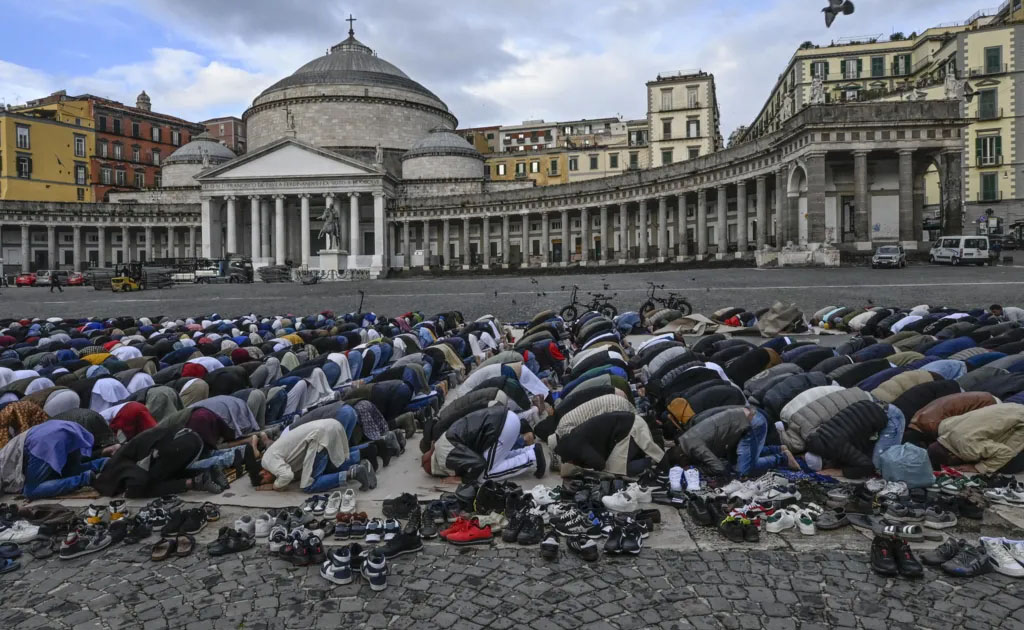
In pictures: Eid celebrations around the world
Muslims around the world are celebrating Eid al-Fitr, one of the biggest celebrations in the Islamic calendar.
Eid al-Fitr – which means “festival of the breaking of the fast” – is celebrated at the end of Ramadan, a month of fasting for many adults, as well as spiritual reflection and prayer.
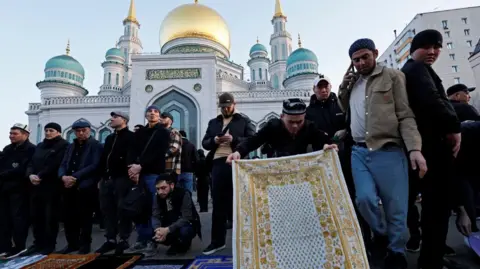
Here in Moscow, worshippers are seen preparing for prayer.
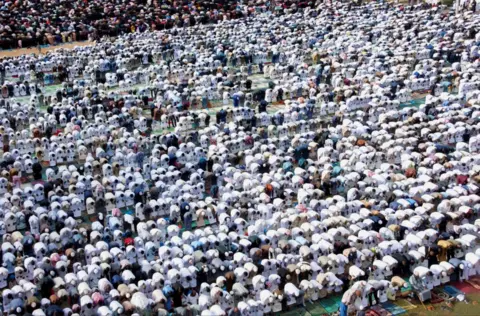
Hundreds took part in prayers at Tononoka grounds, in Mombasa, Kenya
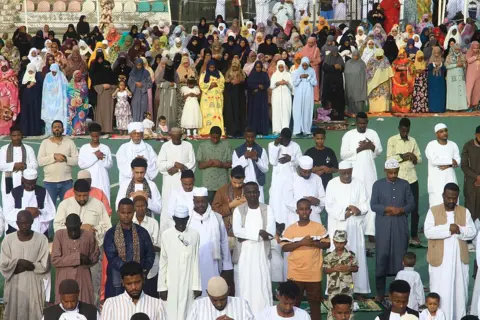
Prayers were also observed at a stadium in Port Sudan in the east of the country
READ ALSO:
- Ex-Rivers HoS wife cries for help over husband’s safety
- Fubara reacts as Ex-HOS, Nwaeke accuses him of bombing oil pipelines, Rivers Assembly
- Natasha: Emmanuel Uduaghan threatens to sue Senator Nwaebonyi
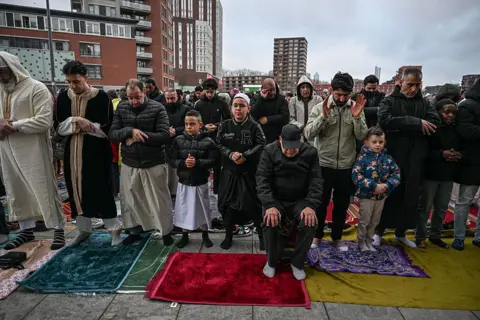
Little children joined adults at the Moskee Essalam in Rotterdam, Netherlands
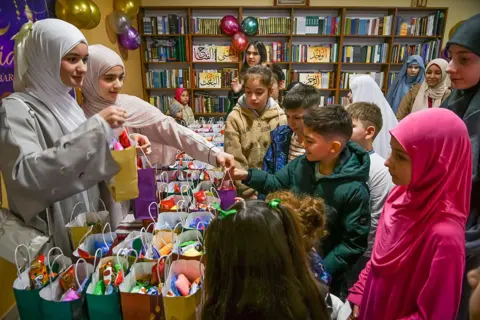
Gifts are handed out to Muslim children in Lviv, Ukraine, as Russia’s war on the country continues
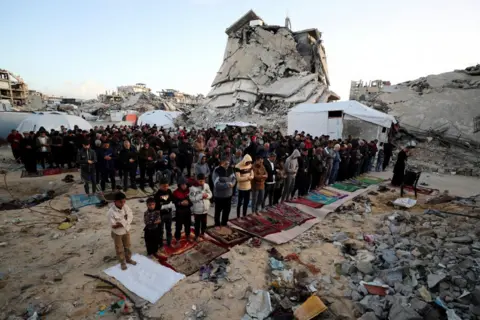
Palestinians in Jabaliya in the northern Gaza Strip pray amidst the rubble of a mosque destroyed in the current war between Israel and Hamas
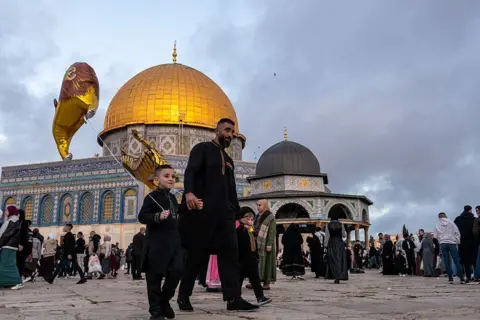
Families gather at al-Aqsa mosque in Jerusalem – the third holiest site in Islam
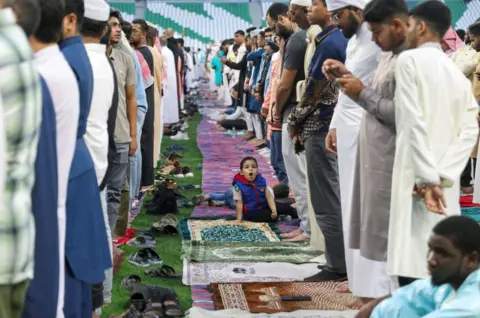
A boy yawns during prayers at a stadium in Qatar
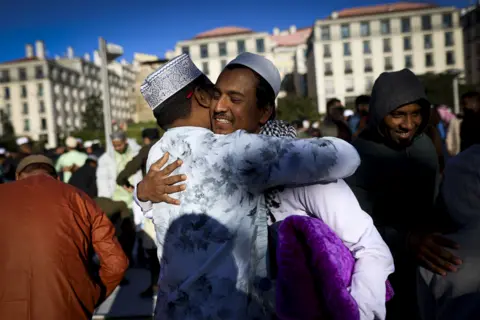
Muslims greet each-other at Martim Moniz Square in Lisbon, Portugal
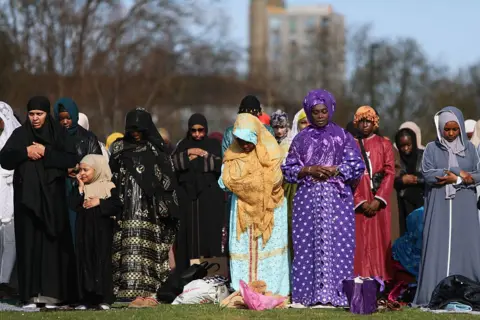
Women worshippers gather in Burgess Park, London, for an outdoor prayer
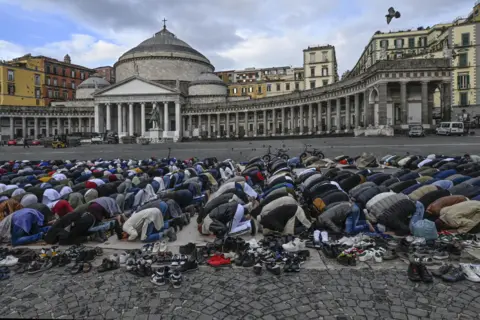
There were also worshippers gathered outside Plebiscito Square in Naples, Italy
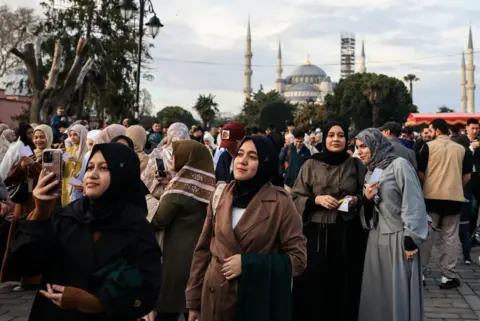
Some women took pictures after attending prayers at the Hagia Sophia Grand Mosque in Istanbul, Turkey
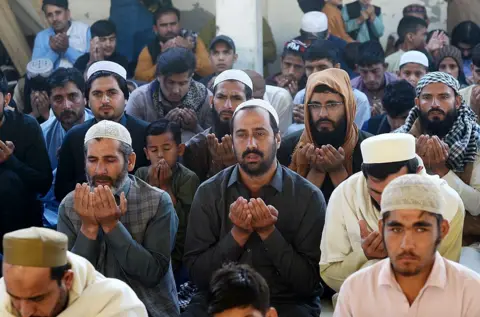
Afghan refugees pray at a mosque on the outskirts of Peshawar, Pakistan
In pictures: Eid celebrations around the world
BBC
International
Search for survivors continue as death toll in Myanmar earthquake exceeds 1,600

Search for survivors continue as death toll in Myanmar earthquake exceeds 1,600

The death toll in Myanmar earthquake hit 1,644, the military government said on Saturday, according to BBC, CNN, Reuters and other reports.
In neighbouring Thailand, where the quake rattled buildings and brought down a skyscraper under construction in the capital Bangkok, at least nine people were killed.
Survivors in Mandalay, Myanmar’s second-biggest city, dug with their bare hands on Friday in desperate attempts to save those still trapped, lacking heavy machinery and with authorities absent.
In Bangkok on Saturday, rescue operations continued at the site of the 33-storey tower’s collapse, where 47 people were missing or trapped under the rubble – including workers from Myanmar.
The US Geological Service’s predictive modelling estimated Myanmar’s death toll could exceed 10,000 and losses could exceed the country’s annual economic output.
A day after making a rare call for international assistance, Myanmar’s junta chief, Senior General Min Aung Hlaing, travelled to hard-hit Mandalay near the epicentre of the quake, which brought down buildings and triggered fires in some areas.
Chairman of the State Administration Council instructed authorities to expedite search and rescue efforts and address any urgent needs,” the junta said in a statement on state media, referring to Min Aung Hlaing.
Airports closed
An initial assessment by Myanmar’s opposition National Unity Government said at least 2,900 buildings, 30 roads and seven bridges had been damaged by the quake.
“Due to significant damage, Naypyitaw and Mandalay international airports are temporarily closed,” said the NUG, which includes remnants of the elected civilian government ousted by the military in a 2021 coup that triggered the civil war.
The control tower at the airport in Naypyitaw, Myanmar’s purpose-built capital city, collapsed, rendering it inoperable, a person with knowledge of the situation told Reuters.
Hospitals in central and northwestern Myanmar were struggling to cope with the influx of injured people, the U.N. Office for the Coordination of Humanitarian Affairs said, warning that damage to roads was hindering access.
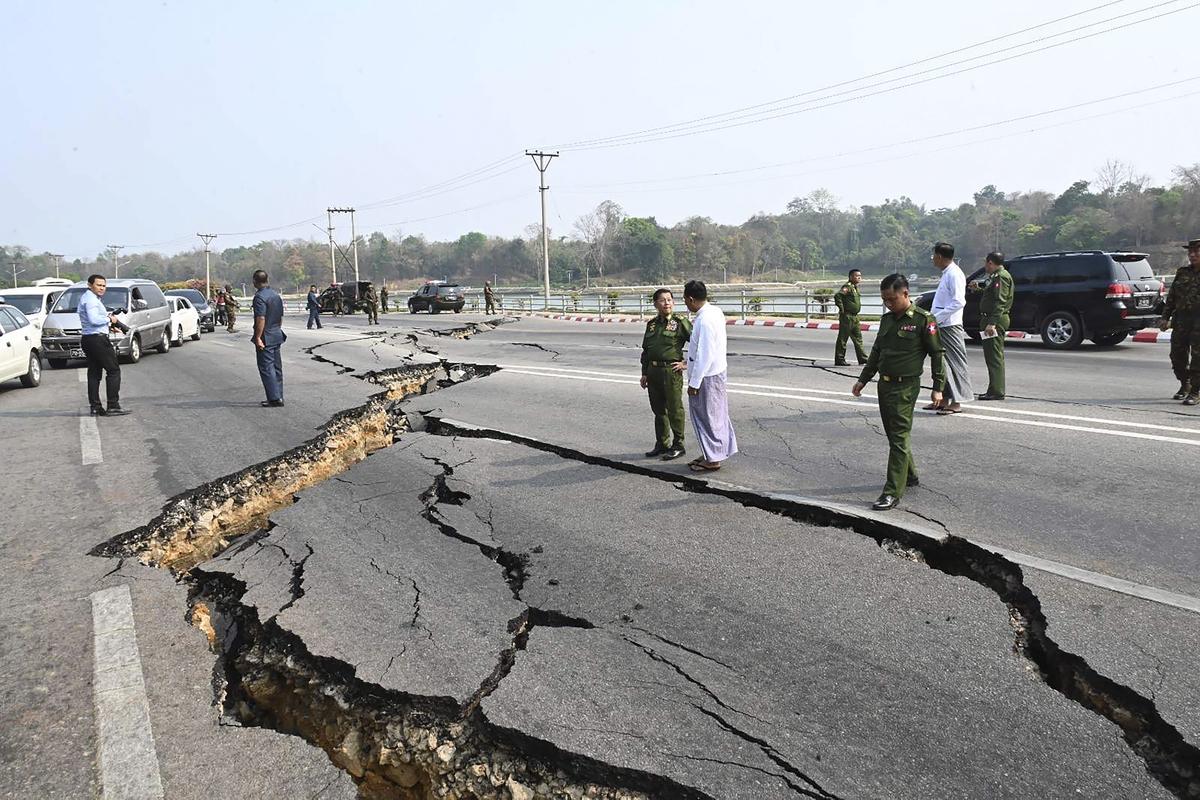
Seventeen cargo trucks of shelter and medical supplies were due to arrive on Sunday to address shortages of medicines, including blood bags and anaesthetics, the agency added.
Chinese President Xi Jinping spoke by phone with the junta chief, China’s embassy in Myanmar said on Saturday, and said Beijing would provide $13.77 million worth of aid, including tents, blankets and emergency medical kits.
The United States, which has a testy relationship with the Myanmar military and has sanctioned its officials, including Min Aung Hlaing, has said it would provide some assistance.
Relief supplies from India on a military aircraft also landed in Yangon, according to Myanmar state media, and India’s government said it was also dispatching ships with 40 tonnes of humanitarian aid.
Russia, Malaysia and Singapore were also sending planeloads of relief supplies and personnel.
-

 Uncategorized2 days ago
Uncategorized2 days agoBreaking: Moon sighted in Saudi, UAE, others, Eid-Fitr holds Sunday
-

 metro2 days ago
metro2 days agoRamadan ends in Nigeria, Sultan announces March 30 as Eid-el-Fitr
-
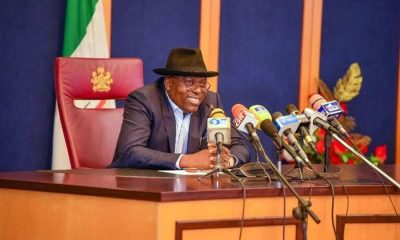
 metro2 days ago
metro2 days agoFubara reacts as Ex-HOS, Nwaeke accuses him of bombing oil pipelines, Rivers Assembly
-
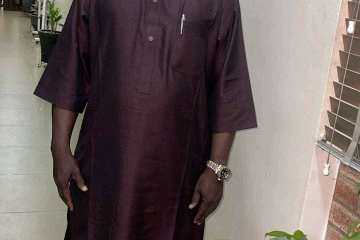
 metro2 days ago
metro2 days agoEmbrace environmental sanitation during Eid-Fitr, LAGESC boss tells Lagosians
-

 Opinion2 days ago
Opinion2 days agoBarbaric mass burning of innocents in Edo, by Farooq Kperogi
-

 metro2 days ago
metro2 days agoEx-Rivers HoS wife cries for help over husband’s safety
-
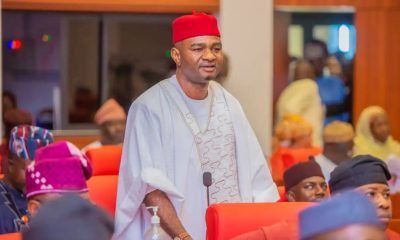
 metro2 days ago
metro2 days agoNatasha: Emmanuel Uduaghan threatens to sue Senator Nwaebonyi
-

 Business2 days ago
Business2 days agoElon Musk sells X to AI startup for $33 billion





